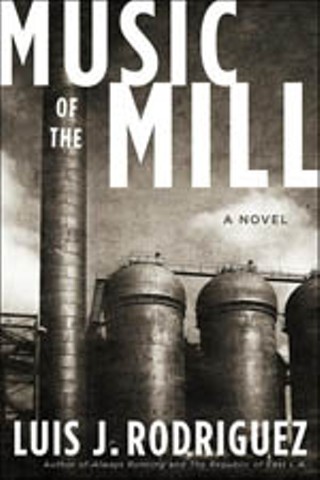Music of the Mill
Luis J. Rodriguez
Reviewed by Belinda Acosta, Fri., June 17, 2005

Music of the Mill
by Luis J. Rodriguez
Rayo, 308 pp., $24.95
Luis Rodriguez's insider knowledge of East L.A. gang life has produced several well-received books of poetry, prose, and nonfiction. With his new novel, he shifts to a broader, but no less gritty, examination of labor culture and activism within the walls of the Nazareth Steel Mill. Spanning 60 years, Rodriguez delivers a sweeping tale anchored by the Salcido family: patriarch Procopio, his son Johnny, and Johnny's daughter Azucena.Split into three parts, the opening, "Procopio's Prelude," is a daunting but necessary read, describing the mill and the work done there in detail, but more importantly, laying out the key players in Nazareth's soon to be contentious labor history: the early days when young men with strong backs could get "honest work" for a better than decent wage, ticking off the days to their retirement 40 years later. Part II, "The Nazareth Suite," is when the book gains some loft, zeroing in on Johnny's unionizing efforts. The political fistfighting between the Nazareth management and especially among the laborers is where much of the book's drama lies, even when Rodriguez's apparently prodigious research on labor activism and social history get in the way. The history is crucial, and it's clear Rodriguez is passionate about including it. Unfortunately, it tends to crowd the core narrative instead of infusing it. Rodriguez's talent as a poet reveals itself in "Azucena's Finale," the last section of the book. In this, Rodriguez elegantly captures the music of Azucena's now adult voice, in what turns out to be a glissando-like read when compared to the earlier sections. Until "Azucena's Finale," she was only a speck on the male-centered telling of the story. So, it's particularly shocking when the details of her backstory are revealed. Rodriguez returns to his earlier themes of gang life in this portion of the book, this time offering a somewhat cautionary look at la vida loca.
An ambitious and valuable work, Music of the Mill could benefit from more of the lyricism Rodriguez saves for last. Even so, his passion for telling his story propels readers to its evocative and touching conclusion.










